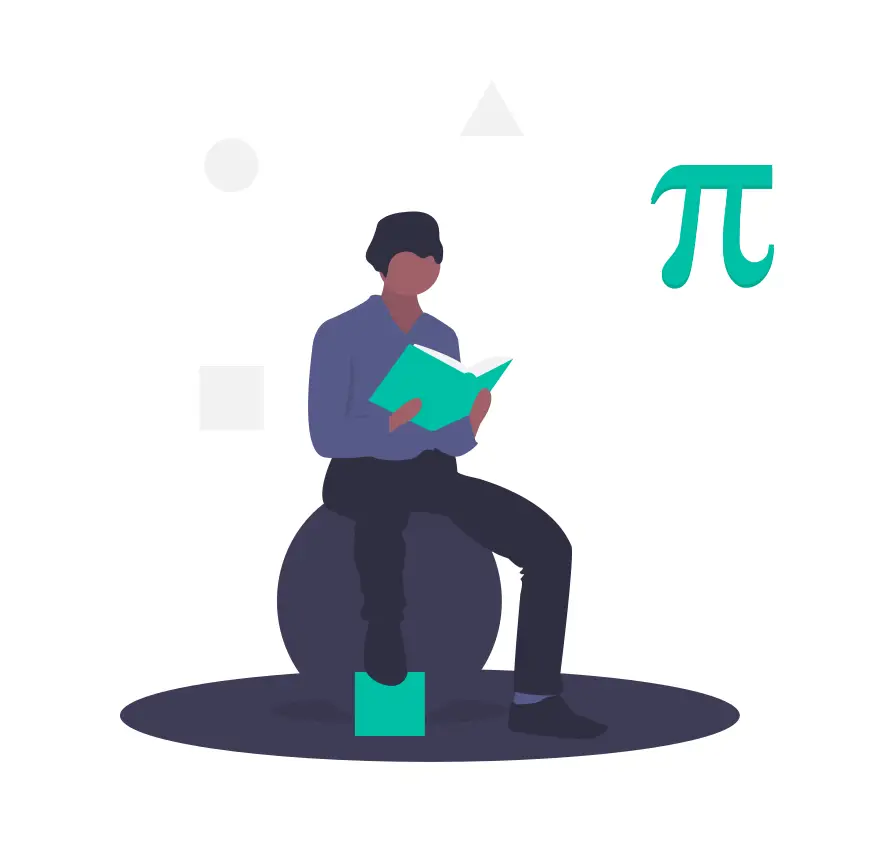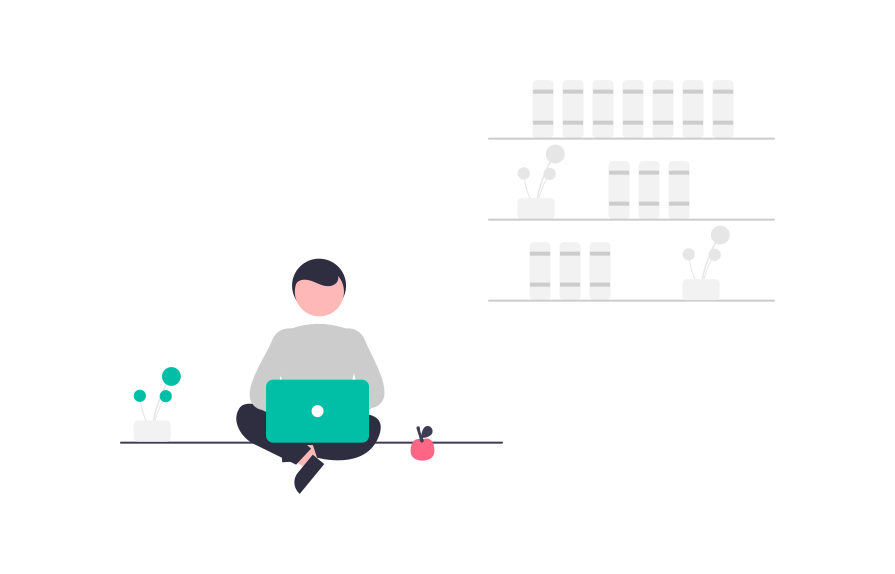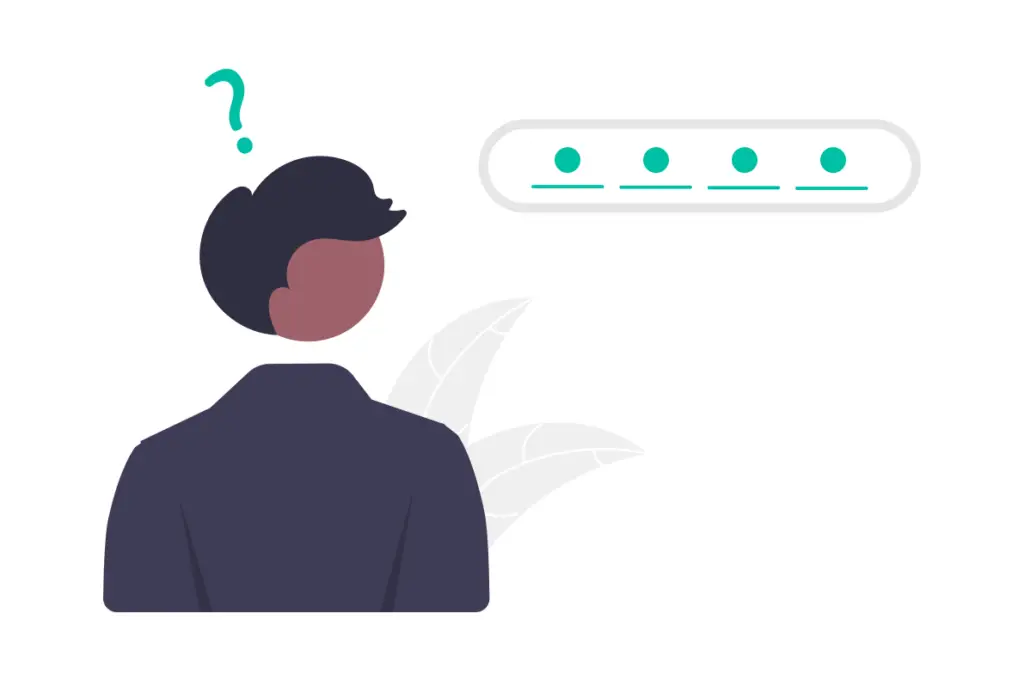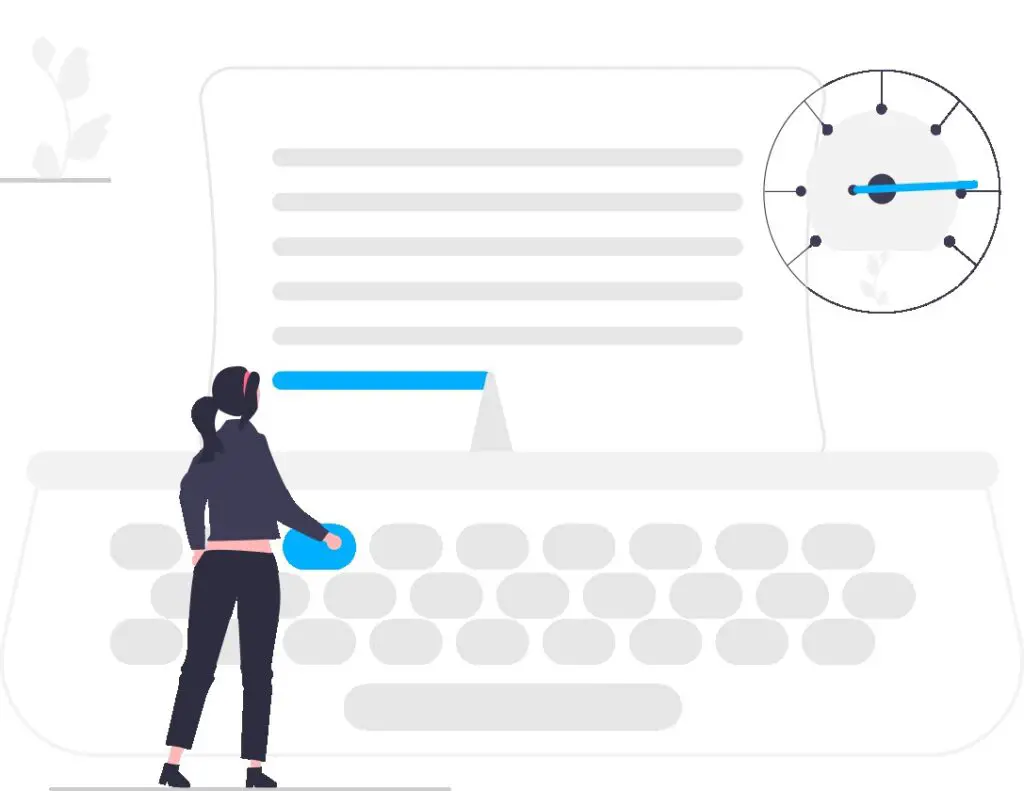Often, I see many of my programmer friends involving themselves in tutorials and rarely none of them invests in a good book related to programming.
Does that represent the whole programmer population where most of them do not read?
Well, actually
Programmers do read programming books for the value that they provide. Programming books offer coders comprehensive insights and structured learning that deeply dive into programming concepts while explaining them well, providing examples, and fostering the development of problem-solving skills.
By studying these compact and highly regarded books, programmers gain valuable knowledge, enhance their coding abilities, and propel their careers to new levels that make them attractive to employers.
Just by looking a purchasing statistics and reviews on the Amazon platform alone, single programming books such as Cracking the Coding Interview by Gayle LaakMann McDowell sell over 8000 copies, reflecting how much programming books are valued.
In today’s fast-paced world, where digital resources and online tutorials seem to dominate the learning landscape, the purpose and relevance of reading books in any career cannot be overlooked.
While the internet offers a vast array of information at our fingertips, there is something uniquely powerful about the knowledge contained within the pages of a book.
Whether you are an aspiring programmer, a seasoned professional, or someone seeking to enhance your skills in any field, the act of immersing oneself in a good book holds immense value.
Let’s see why programming books are important and can be of value to programmers.
Do programmers need to read books?

Programmers do need to read books for the following reasons:
- Programming books act as reference material for building a reliable knowledge base
- Books provide in-depth material for understanding programming fundamentals
- Programming books show you how to effectively solve problems by creating software solutions
- They help nurture strong coding skills by teaching programming principles and best practices
- If you want to gain in-depth knowledge about a programming concept or algorithm, programming books provide the best resource
- Books are a repository of mistakes and remedies from experienced programmers to help you avoid such pitfalls
- You will learn much faster from a book than from following a tutorial: It’s a fast lane to information absorption
- Books condense the knowledge and insights of seasoned programmers into one resource
- Books will help you stay ahead and adapt to the programming’s ever-changing trends and insights
Building a Reliable Knowledge Base: The Power of Programming Books as References
As a beginner programmer, one of the most valuable assets you can have is a reliable knowledge base.
It forms the foundation of your coding journey, providing you with the necessary tools and understanding to tackle challenges effectively.
Here’s how:
Books offer comprehensive coverage for holistic learning
Programming books offer comprehensive coverage of various programming languages, concepts, and techniques.
They are often designed with a structured approach, guiding you from the basics to more advanced topics.
Take, for example, the book “Python Crash Course” by Eric Matthes.
This book not only introduces you to the fundamentals of Python but also dives into real-world projects, giving you a well-rounded understanding of the language.
Books provide in-depth explanations and examples
Books provide in-depth explanations and examples that illustrate programming concepts and techniques.
Unlike online resources that may focus on brevity, books allow for more detailed discussions, helping you grasp complex ideas.
For instance, the book “Clean Code: A Handbook of Agile Software Craftsmanship” by Robert C. Martin delves into best practices for writing clean and maintainable code.
It provides concrete examples and practical advice, allowing you to improve your coding skills and produce higher-quality software.
Programming books contain expert insights and experience
One of the remarkable benefits of programming books is the insights and experiences shared by seasoned programmers.

These experts have often encountered various challenges throughout their careers and share their wisdom within the pages of books.
An excellent example is “The Pragmatic Programmer: From Journeyman to Master” by Andrew Hunt and David Thomas.
This book imparts valuable lessons, tips, and techniques based on the authors’ extensive experience, guiding you toward becoming a better programmer.
Books are a reference to problem-solving strategies and solutions
Programming books not only teach you how to write code but also provide problem-solving strategies and solutions.
They present real-world scenarios and explain how to approach and solve common programming problems.
For instance, the book “Cracking the Coding Interview: 189 Programming Questions and Solutions” by Gayle Laakmann McDowell focuses on preparing you for technical interviews.
It offers algorithmic challenges, their solutions, and insights on how to tackle coding problems effectively.
Programming books offer tailored learning paths that you can follow

Books cater to different skill levels and learning preferences, allowing you to choose the resources that best suit your needs.
Whether you’re a complete beginner or an intermediate programmer looking to advance your skills, there are programming books tailored to your level.
An example of this is “Head First Java: A Brain-Friendly Guide” by Kathy Sierra, Bert Bates, and Trisha Gee, which employs a visually rich and interactive approach to teaching Java programming, making it accessible and engaging for beginners.
By utilizing programming books as references, you can enhance your learning journey, gain a deeper understanding of concepts, and cultivate problem-solving skills.
Exploring Programming Fundamentals: In-Depth Learning with Books
To become a proficient programmer, it is crucial to have a solid understanding of programming fundamentals.
These fundamentals serve as the building blocks of your coding skills and enable you to approach more complex concepts with confidence.
While there are various resources available, such as online tutorials, videos, and coding boot camps, they do not offer much in-depth information as programming books do.
Books offer a unique and in-depth learning experience.
Programming books do that by:
Clear and Structured Explanations
Programming books provide clear and structured explanations of fundamental concepts.
They break down complex ideas into manageable chunks, ensuring that beginners can grasp the basics without feeling overwhelmed.
For example, “Eloquent JavaScript, 3rd Edition: A Modern Introduction to Programming” by Marijn Haverbeke offers a systematic approach to learning JavaScript, starting from the fundamentals and gradually progressing to more advanced topics.
The book’s clear explanations help beginners develop a solid foundation in the JavaScript programming language.
Step-by-Step Examples
Books often present step-by-step examples that illustrate programming fundamentals in action.
These examples showcase how different concepts and techniques are applied in real-world scenarios, helping you understand their practical applications.
One good example that employs this opportunity is “Learn C++ Quickly: A Complete Beginner’s Guide to Learning C++, Even If You’re New to Programming (Crash Course With Hands-On Project)” by Code Quickly.
The book provides hands-on examples that guide beginners through the fundamentals of C++ programming.
Even if you are totally new to programming, this book’s relevant examples help you relate the theoretical concepts of the C++ language to real applications.
Practice Exercises
To reinforce your understanding of programming fundamentals, books frequently include practice exercises.
These exercises challenge you to apply the concepts you’ve learned, solidifying your knowledge through hands-on practice.
The book “Python Programming: An Introduction to Computer Science” by John Zelle includes a range of exercises that allow you to practice Python programming and reinforce fundamental concepts.
Without such exercises, learning would be pointless because you would just be glancing over the book without really knowing how to connect the concepts together yourself.
Conceptual Clarity
Books offer conceptual clarity by explaining the “why” behind programming fundamentals.
Understanding the underlying principles and rationale behind concepts enables you to apply them effectively in various scenarios.
“Structure and Interpretation of Computer Programs” by Harold Abelson and Gerald Jay Sussman with Julie Sussman is a renowned book that provides a deep understanding of programming concepts and emphasizes the importance of computational thinking.
If you are ever taking a computer science course, this book should be on your reading and implementation list.
Effective Problem Solving: Unveiling Software Solutions through Programming Books
Problem-solving lies at the heart of programming, and the ability to tackle challenges efficiently is a key skill for any programmer.
To become an effective problem solver, programming books can serve as invaluable resources.
Programming books help you develop problem-solving skills through:
Strategies and Approaches
Programming books provide various strategies and approaches to tackle programming problems effectively.
They offer insights into different problem-solving techniques, algorithms, and data structures.
For example, “Introduction to Algorithms” by Thomas H. Cormen, Charles E. Leiserson, Ronald L. Rivest, and Clifford Stein is a renowned book that covers a wide range of algorithms and problem-solving techniques.
Case Studies and Real-World Examples
Books often include case studies and real-world examples that demonstrate how to apply problem-solving techniques in practical scenarios.
By studying these examples, you can learn how experienced programmers approach and solve complex problems.
“The Algorithm Design Manual” by Steven S. Skiena is a book that combines algorithmic concepts with real-world case studies, helping you understand problem-solving strategies through relatable examples.
Step-by-Step Problem Solving
Programming books guide you through step-by-step problem-solving processes.
They break down complex problems into smaller, manageable steps, allowing you to approach them methodically.
“Cracking the Coding Interview” by Gayle Laakmann McDowell is a popular book that presents coding interview questions and provides detailed step-by-step solutions, guiding you through the problem-solving journey.
Analysis of Trade-offs
Books often analyze trade-offs between different approaches to problem-solving.
They discuss the advantages, disadvantages, and efficiency of various algorithms, helping you make informed decisions when choosing the most suitable solution for a given problem.
“The Algorithm Design Manual” by Steven S. Skiena is an excellent resource that provides insightful analysis of algorithmic trade-offs and helps you understand the efficiency of different solutions.
Debugging and Error Handling
Programming books also cover debugging techniques and error-handling strategies, which are essential aspects of problem-solving in software development.
They offer insights into identifying and fixing issues in your code, ensuring that your solutions are robust and error-free.
“The Pragmatic Programmer: From Journeyman to Master” by Andrew Hunt and David Thomas provides practical advice on debugging, error handling, and maintaining high-quality code.
By utilizing programming books for effective problem solving, you can learn diverse strategies, gain insights from real-world examples, develop a systematic approach to problem solving, analyze trade-offs, and enhance your debugging skills.
These resources empower you to unravel software solutions efficiently and become a proficient problem solver.
Nurturing Strong Coding Skills: Programming Principles and Best Practices in Books
To excel as a programmer, it is crucial to nurture strong coding skills.
These skills encompass not only writing functional code but also adopting best practices, adhering to programming principles, and developing clean and maintainable code.
Programming books play a pivotal role in guiding you toward cultivating these essential skills.
How?
Principles of Clean Code
Books delve into the principles of clean code, emphasizing the importance of writing code that is easy to understand, modify, and maintain.
“Clean Code: A Handbook of Agile Software Craftsmanship” by Robert C. Martin is a well-regarded book that provides insights into writing clean, readable, and efficient code.
It offers guidelines and best practices to ensure your codebase remains robust and manageable.
Design Patterns and Architecture
Programming books often introduce design patterns and architectural concepts, which are essential for building scalable and maintainable software systems.
Books like “Design Patterns: Elements of Reusable Object-Oriented Software” by Erich Gamma, Richard Helm, et al. an in-depth exploration of design patterns, offering reusable solutions to common programming problems.
Code Refactoring and Improvement
Books guide you in the art of code refactoring and improvement, teaching you techniques to enhance existing code without altering its functionality.
They highlight the significance of refactoring to maintain code quality and readability over time.
“Refactoring: Improving the Design of Existing Code” by Martin Fowler offers practical insights and strategies for refactoring code effectively.
Test-Driven Development (TDD)
Programming books often introduce the concept of test-driven development (TDD), a methodology that advocates writing tests before writing code.
Books like “Test-Driven Development: By Example” by Kent Beck provide step-by-step guidance on adopting TDD practices, enabling you to write robust and reliable code while ensuring proper test coverage.
Collaboration and Version Control
Books also emphasize the importance of collaboration and version control in software development.
They introduce tools like Git and techniques for managing code repositories effectively.
“Pro Git” by Scott Chacon and Ben Straub is a comprehensive book that covers the fundamentals of Git and its usage in collaborative development environments.
By immersing yourself in programming books that focus on principles and best practices, you can gain a deep understanding of clean code principles, design patterns, code refactoring, and other essential aspects of programming.
These resources provide you with the knowledge and tools to write maintainable, scalable, and high-quality code, ultimately nurturing strong coding skills that set you apart as a proficient programmer.
Dive Deep into Programming: In-Depth Knowledge with Books as Your Resource
If you aspire to become a proficient programmer, diving deep into programming and acquiring in-depth knowledge is essential.
While online resources provide quick answers and tutorials, books offer a unique opportunity to explore programming concepts in depth.
Here are the opportunities that books provide to help you develop in-depth knowledge around a topic:
Comprehensive Coverage of Concepts
Programming books provide comprehensive coverage of programming concepts, ensuring that you gain a thorough understanding of the subject matter.
They delve into topics such as data structures, algorithms, object-oriented programming, and more.
For example, “Introduction to the Theory of Computation” by Michael Sipser offers a comprehensive exploration of theoretical computer science concepts, providing a deep understanding of computational models and complexity theory.
In-Depth Explanations and Examples
Books offer in-depth explanations and examples that elucidate complex programming concepts.
They go beyond surface-level explanations and provide detailed insights into how things work under the hood.
“The C++ Programming Language” by Bjarne Stroustrup is a renowned book that offers comprehensive explanations and examples of the C++ programming language, catering to both beginner and advanced programmers.
Specialized and Advanced Topics
Books allow you to explore specialized and advanced topics in programming that may not be readily available in online tutorials or introductory courses.
They cater to specific domains, technologies, or advanced programming techniques.
“Machine Learning: A Probabilistic Perspective” by Kevin P. Murphy is a comprehensive book that delves into the field of machine learning, offering a detailed exploration of probabilistic models and learning algorithms.
Learning at Your Own Pace
Books provide the flexibility to learn at your own pace. You can take the time to absorb complex concepts, revisit sections, and engage in self-paced learning.
The structured approach and comprehensive content in books enable you to deepen your understanding without feeling rushed.
This allows you to grasp intricate programming topics thoroughly.
Avoiding Pitfalls: Learning from Mistakes in Programming Books
In the realm of programming, mistakes are an inevitable part of the learning process.
However, learning from these mistakes can be a valuable opportunity for growth.
Programming books provide a unique advantage by serving as repositories of mistakes and remedies from experienced programmers.
Programming books help in the Identification of Common Mistakes
Programming books often highlight common mistakes made by programmers, providing insights into what can go wrong during the coding process.
By familiarizing yourself with these pitfalls, you can proactively avoid them in your own coding endeavors.
“Effective Java” by Joshua Bloch, for example, includes a section dedicated to common programming pitfalls and how to avoid them.
Practical Remedies and Best Practices
Books not only identify mistakes but also offer practical remedies and best practices to overcome them.
They provide guidance on how to rectify common errors and optimize your code.
“JavaScript: The Good Parts” by Douglas Crockford is a book that identifies common pitfalls in JavaScript and provides recommendations on best practices for writing clean and efficient code.
Lessons from Experienced Programmers
Books allow you to learn from the experiences of seasoned programmers who have encountered and learned from their own mistakes throughout their careers.
These programmers share their wisdom, providing valuable lessons and insights into common pitfalls to avoid.
“The Pragmatic Programmer” by Andrew Hunt and David Thomas is a book filled with anecdotes and experiences that help programmers understand the potential pitfalls and navigate through them.
Cultivating a Mindset of Continuous Improvement
By learning from mistakes presented in programming books, you cultivate a mindset of continuous improvement.
You become more aware of potential pitfalls, develop better coding habits, and refine your problem-solving skills.
This leads to improved code quality and a stronger foundation for your programming journey.
Through programming books, you can leverage the knowledge and experiences of experienced programmers, identify common mistakes, and embrace the remedies and best practices they offer.
By avoiding pitfalls and learning from mistakes, you enhance your programming skills, develop robust code, and become a better programmer overall.
Fastlane to Knowledge: Accelerated Learning through Programming Books
When it comes to learning programming, time is of the essence.
As a beginner programmer, you may wonder how to efficiently absorb knowledge and acquire new skills.
Programming books act as a fastlane to knowledge, offering an accelerated learning experience that can surpass traditional tutorials and online resources.
Programming books do that by:
Providing comprehensive and structured content that is designed to facilitate efficient learning.
They present information in a logical progression, guiding you from foundational concepts to more advanced topics.
This organized approach ensures that you learn in a systematic and coherent manner, saving time that would otherwise be spent searching for relevant resources.
Unlike online tutorials or courses that may have distractions or advertisements, programming books provide a focused learning environment.
With a book in hand, you can concentrate solely on the content without interruptions.
This focused approach helps you immerse yourself in the material, leading to better retention of information and faster learning.
If you are a well above average reader, you are probably going to enjoy and consume much information faster with a book than following a tutorial.
What books should I read as a programmer?
Programmers should read a variety of books that cover essential programming topics, concepts, and best practices. The books a programmer should choose must serve as valuable resources for expanding knowledge, improving skills, and staying up-to-date with industry best practices.
Here are some recommendations for the types of books programmers should consider:
Books on Algorithms and Data Structures
Programmers should read books that delve into algorithms and data structures, such as “Introduction to Algorithms” by Thomas H. Cormen et al and “Data Structures and Algorithms Made Easy: Data Structures and Algorithmic Puzzles” by Narasimha Karumanchi.
Such books provide a comprehensive understanding of algorithms and their applications, helping programmers develop efficient problem-solving techniques.
Every programmer must know data structures and algorithms.
Books on Writing Clean Code
Learning to write clean, readable, and maintainable code is crucial for programmers.
Books like “Clean Code: A Handbook of Agile Software Craftsmanship” by Robert C. Martin emphasize the importance of clean coding practices and offer guidelines for producing high-quality code.
Books on Best Practices and Design Patterns
Books that discuss best practices and design patterns enable programmers to improve their software design and development skills.
“Design Patterns: Elements of Reusable Object-Oriented Software” by Erich Gamma et al. is a classic book that introduces common design patterns and their applications, allowing programmers to write more maintainable and flexible code.
Books on Domain-Specific Topics
Depending on their area of interest, programmers should also explore books specific to their domain.
For example, for web development, books like “Eloquent JavaScript” by Marijn Haverbeke provide a comprehensive introduction to JavaScript and web development concepts.
Remember, this list is not exhaustive, and there are numerous other books available that cater to different programming languages, technologies, and specialized topics.
Programmers need to choose books that align with their interests, goals, and skill levels to maximize their learning experience.
Now, let’s look at the most effective ways to read a programming book and get value out of it.
How to read programming books and become a better programmer

Simply reading a programming book is not enough to become a better programmer.
To make the most out of your reading experience, it is essential to have a clear strategy and approach.
How:
1. Set an Incentive: Have a Goal or Project in Mind
When learning with a programming book, it is crucial to have a clear incentive such as a goal or project that you want to accomplish.
This provides a purpose and context for your learning journey.
For example, if you aim to develop a web application, choose a book that covers the relevant technologies and frameworks you need to learn how to develop an app.
You should not start by reading books on how to write clean code, when in the first place, you haven’t built and completed a project for yourself.
Besides, accomplishing a simple project will help motivate you to dive deeper into the concepts and book’s content without giving up.
Small wins build on huge wins.
Start with a small project, find a book that can take you through it, and solve the small project.
After articulating the ideas of building a complete project, then you can iterate to the next phase, which can involve adding additional components to your project.
In our case, our mobile app application can benefit from a chat component. With this next goal in mind, you can be able to learn how signals work and how you can implement them into your advancing project.
2. Read, Code, and Test: Emphasizing Active Learning
Merely reading a programming book passively is not sufficient. It is crucial to engage actively with the material by coding and testing what you learn.
Apply the concepts and examples from the book in your own coding projects, experimenting with different scenarios and variations.
3. Consider Your Skill Level and Experience
When selecting a programming book, consider your skill level and experience.
Choose books that align with your current proficiency to ensure that the content is neither too basic nor overly complex.
Beginner-friendly books provide a strong foundation, while intermediate or advanced books cater to those seeking to expand their expertise.
4. Consider Relevance to Your Current Problem or Programming Language
To maximize the effectiveness of a programming book, consider its relevance to your current problem or the programming language you are using.
Books that directly relate to your current programming challenges or the language you are working with offer immediate practical application of the concepts you learn.
Remember, the true value of reading programming books lies not only in the knowledge they impart but also in the application and integration of that knowledge into your coding practice.
Best must-read programming books
In the world of programming, certain books stand out as must-reads, offering unique opportunities for programmers to enhance their skills and broaden their knowledge.
They are:
- “The Pragmatic Programmer” by Andrew Hunt and David Thomas
- “Clean Code: A Handbook of Agile Software Craftsmanship” by Robert C. Martin
- “Algorithms” by Robert Sedgewick and Kevin Wayne
- “Data Structures and Algorithms Made Easy: Data Structures and Algorithmic Puzzles” by Narasimha Karumanchi
- “The Art of Computer Programming: Fundamental Algorithms” by Donald E. Knuth
- “Code: The Hidden Language of Computer Hardware and Software” by Charles Petzold
- “Don’t Make Me Think: A Common Sense Approach to Web Usability ” by Steve Krug
- “Coders at Work: Reflections on the Craft of Programming” by Peter Seibel
- “Cracking the Coding Interview: 189 Programming Questions and Solutions” by Gayle Laakmann McDowell
- “Soft Skills: The Software Developer’s Life Manual” by John Sonmez
“The Pragmatic Programmer” by Andrew Hunt and David Thomas
This book is considered a classic in the programming community, offering timeless advice on software development practices.
It covers a wide range of topics, including code organization, debugging, and project management.
By reading this book, programmers gain insights into best practices, improving their coding efficiency and overall craftsmanship.
“Clean Code: A Handbook of Agile Software Craftsmanship” by Robert C. Martin
Regarded as a go-to resource for writing clean, maintainable code, this book emphasizes the importance of code quality and readability.
It offers practical techniques and principles for producing high-quality code, enhancing the programmer’s ability to collaborate effectively, and creating software that is easy to understand and maintain.
“Algorithms” by Robert Sedgewick and Kevin Wayne
This book provides a comprehensive exploration of algorithms, making it an invaluable resource for programmers.
It covers a wide range of algorithms and their applications, equipping programmers with the knowledge to solve complex problems efficiently.
Reading this book helps you develop strong problem-solving skills and a deep understanding of algorithmic thinking.
“Data Structures and Algorithms Made Easy: Data Structures and Algorithmic Puzzles” by Narasimha Karumanchi
This book combines the fundamental concepts of algorithms and data structures, presenting them in a concise and accessible manner.
It enables programmers to understand the relationships between data organization and efficient program execution.
By reading this book, programmers can design more efficient algorithms and optimize their code for better performance.
“The Art of Computer Programming: Fundamental Algorithms” by Donald E. Knuth
Considered a definitive work in computer science, this book delves into the fundamental algorithms and their mathematical foundations.
It provides a deep understanding of algorithmic concepts and analysis.
Programmers who study this book gain insights into advanced algorithms, algorithmic design principles, and the mathematical underpinnings of computer science.
“Code: The Hidden Language of Computer Hardware and Software” by Charles Petzold
This book offers a unique perspective on the inner workings of computers.
It explores the fundamental concepts of computer hardware and software, demystifying the layers of abstraction.
By reading this book, you gain a deeper understanding of how code interacts with the underlying hardware, enabling them to write more efficient and optimized programs.
“Don’t Make Me Think: A Common Sense Approach to Web Usability ” by Steve Krug
This book focuses on user experience and web usability, providing insights into designing intuitive and user-friendly interfaces.
It highlights the importance of simplicity and clarity in user interactions.
Programmers who read this book gain valuable knowledge in creating user-centric designs, leading to more successful and engaging software applications.
“Coders at Work: Reflections on the Craft of Programming” by Peter Seibel
This book offers a collection of interviews with renowned programmers, providing valuable insights into their experiences and approaches to coding.
It offers a glimpse into the minds of successful programmers and their problem-solving strategies.
By reading this book, programmers gain inspiration and learn from the real-world experiences of industry experts.
“Cracking the Coding Interview: 189 Programming Questions and Solutions” by Gayle Laakmann McDowell
Designed as a comprehensive guide for technical interviews, this book offers a wealth of coding questions and solutions.
It helps programmers prepare for interviews by honing their problem-solving skills, improving their algorithmic knowledge, and familiarizing themselves with common interview scenarios.
“Soft Skills: The Software Developer’s Life Manual” by John Sonmez
This book covers a range of non-technical skills that are crucial for a programmer’s professional growth.
It addresses career development, communication, productivity, and personal finance.
By reading this book, you will gain insights into personal and professional development, enabling you to thrive in your careers.
These must-read programming books provide programmers with unique opportunities to improve their coding skills, expand their knowledge, and excel in their careers.
From mastering clean code principles to understanding algorithms and enhancing problem-solving abilities, these books offer valuable insights and guidance for programmers on their quest for continuous learning and improvement.
FAQs
Are programming books still relevant in the age of online resources?
Programming books remain relevant in the age of online resources. While online content provides quick answers, books offer in-depth knowledge, structured learning, and expert insights.
They serve as comprehensive references, teaching fundamental concepts, best practices, and advanced topics.
Reading books enhances understanding, promotes focused learning, and cultivates a strong foundation.
So, supplementing online resources with programming books is a valuable approach to becoming a well-rounded and proficient programmer.
How can reading programming books enhance my coding skills?
Reading programming books enhances coding skills by providing comprehensive knowledge, practical insights, and expert guidance.
Books cover fundamental concepts, coding best practices, and advanced techniques such as algorithms, design patterns, and clean code principles.
They deepen understanding, teach problem-solving strategies, and showcase real-world examples allowing hands-on practice.
By actively engaging with the material, applying concepts through coding exercises, and learning from experienced programmers, reading books strengthens coding abilities, improves problem-solving abilities, and cultivates effective coding habits.
Can programming books help beginners?
Programming books are immensely helpful for beginners. They provide structured learning, foundational knowledge, and step-by-step explanations.
Books cater to beginners by introducing programming concepts in a beginner-friendly language and guiding them through practical examples and exercises.
They offer a comprehensive understanding of programming principles, problem-solving techniques, and coding best practices.
Reading programming books empowers beginners to build a strong foundation, gain confidence, and form a solid understanding of the fundamentals.
Can I find programming books for specific programming languages or frameworks?
You can find programming books specifically tailored to various programming languages and frameworks.
Many authors and publishers release books dedicated to popular languages such as Python, JavaScript, Java, C++, and more. These books delve into language syntax, core concepts, best practices, and application development.
Similarly, there are books focused on specific frameworks and libraries like React, Django, Angular, and TensorFlow. These books provide detailed guidance on using these tools effectively and building applications with them.
Can I learn programming through books?
You can learn programming through books from being a complete beginner to a professional coder.
Programming books offer structured learning, comprehensive explanations, and practical examples that teach programming concepts, problem-solving techniques, and coding best practices.
By actively engaging with the material, practicing coding exercises, and applying knowledge to projects, you can develop strong programming skills.
Should you buy programming books for reading?
Yes, buying programming books for reading is highly recommended. By owning programming books, you have a tangible resource at your fingertips, allowing you to learn at your own pace and refer back to the material whenever needed. Investing in programming books is an investment in your growth as a programmer, providing a reliable and valuable source of information and guidance.
How do I incorporate programming books into my learning routine?
Incorporating programming books into your learning routine to greatly enhance your understanding and skills should be done by following these steps:
- Set Clear Goals: Define what you want to achieve with each book. Identify specific concepts, languages, or areas you want to focus on.
- Allocate Dedicated Time: Dedicate regular time slots for reading. Establish a consistent schedule that works for you, whether it’s daily, weekly, or on specific days.
- Break it Down: Divide the book into manageable sections or chapters. Set milestones and track your progress as you complete each portion.
- Active Reading: Engage actively with the content. Take notes, highlight important points, and write summaries or reflections to reinforce your understanding.
- Practical Application: Apply what you learn. Code along with the examples provided in the book. Practice implementing concepts in your own projects to solidify your knowledge.
- Review and Recap: Regularly review the material you have covered. Summarize key concepts and revisit challenging sections to reinforce your understanding.
- Seek Complementary Resources: Supplement your learning with online tutorials, exercises, or videos that align with the topics covered in the book. This can provide additional reinforcement and practical exercises.
- Join Study Groups or Forums: Engage in discussions with fellow learners. Join study groups or online forums where you can share insights, ask questions, and collaborate with others.
- Apply a Growth Mindset: Embrace challenges and be persistent. Programming books can be dense and challenging, but with perseverance, you’ll overcome obstacles and gain a deeper understanding.
- Reflect and Iterate: Reflect on your progress and learning experience. Make adjustments to your routine as needed, considering the effectiveness of the books you choose and your personal learning style.
Conclusion
Conclusion
Incorporating programming books into your learning routine can have a profound impact on your growth as a programmer.
By setting clear goals, allocating dedicated time, and actively engaging with the content, you can leverage the comprehensive knowledge, practical examples, and expert insights found in programming books.
These resources provide a structured and in-depth approach to learning, allowing you to develop strong coding skills, expand your knowledge, and enhance your problem-solving abilities.
Whether you are a beginner or an experienced programmer, programming books offer valuable opportunities to deepen your understanding, master new concepts, and stay updated with industry best practices.
That’s it for this article!
Create, inspire, repeat!







